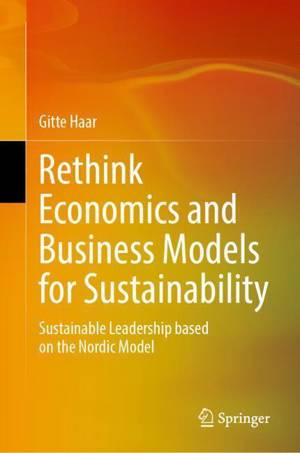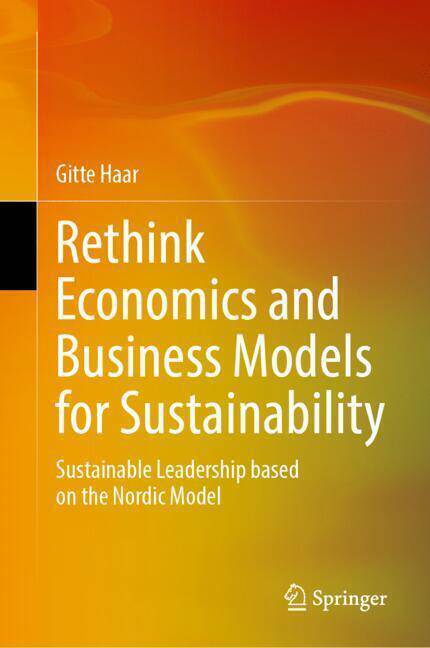
- Afhalen na 1 uur in een winkel met voorraad
- Gratis thuislevering in België vanaf € 30
- Ruim aanbod met 7 miljoen producten
- Afhalen na 1 uur in een winkel met voorraad
- Gratis thuislevering in België vanaf € 30
- Ruim aanbod met 7 miljoen producten
Rethink Economics and Business Models for Sustainability
Sustainable Leadership Based on the Nordic Model
Gitte HaarOmschrijving
The overall framework for leaders is now changing and a reassessment of traditional economic and financial models is called for to foster the green and circular transition. The Nordic countries may offer some of the values and leadership trends needed to implement sustainable leadership. Sustainable leadership is necessary to attract new generations of customers and employees, and to drive the great transition to a green economy. Leaders need new competences and new values to prepare their companies for the new market conditions and geopolitical situation. Managing businesses' impacts throughout the value chain is the new normal and sustainability is a business imperative.
In this regard, the Sustainable Development Goals can offer guidance. The Nordic societies have proven to be forerunners in terms of developing SDG-oriented business strategies, and their economies remained resilient and stable through the financial crisis and the COVID-19 pandemic. Using the Nordic example, this book discusses how the transformation of business models, organizations, and societies, as well as the pricing of externalities, will be essential to operating within the boundaries of a fair and sustainable world. The book introduces a UN SDG Fund and explains the value of sending executives on "Højskole" - a Danish journey of lifelong learning and the continuous acquisition of new leadership skills and values. In addition, it presents the new concepts of the "Strategic House" and "Purpose Gap," while adapting Porter's value chain into a Circular Organization Model. The book also features a catalogue of proven methods and guidelines to assist companies in transforming their businesses towards sustainability, ESG, and regenerative impacts.
Specificaties
Betrokkenen
- Auteur(s):
- Uitgeverij:
Inhoud
- Aantal bladzijden:
- 186
- Taal:
- Engels
Eigenschappen
- Productcode (EAN):
- 9783031566523
- Verschijningsdatum:
- 29/06/2024
- Uitvoering:
- Hardcover
- Formaat:
- Genaaid
- Afmetingen:
- 41 mm x 224 mm
- Gewicht:
- 453 g

Alleen bij Standaard Boekhandel
Beoordelingen
We publiceren alleen reviews die voldoen aan de voorwaarden voor reviews. Bekijk onze voorwaarden voor reviews.











